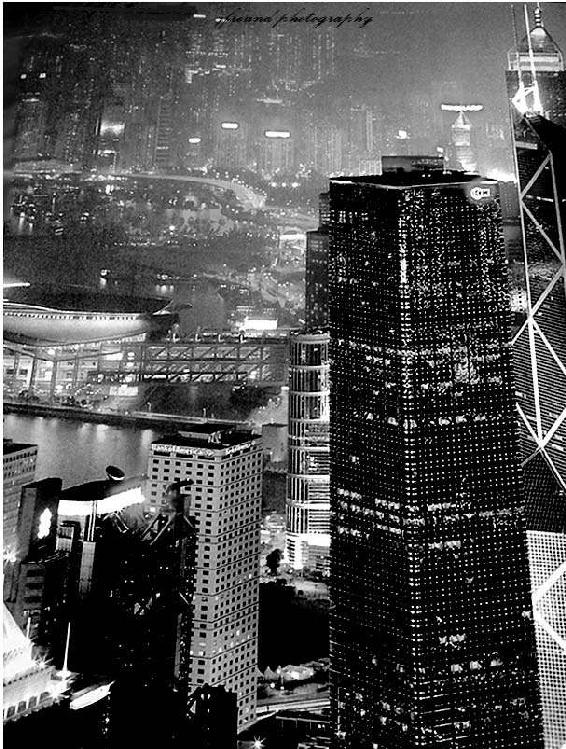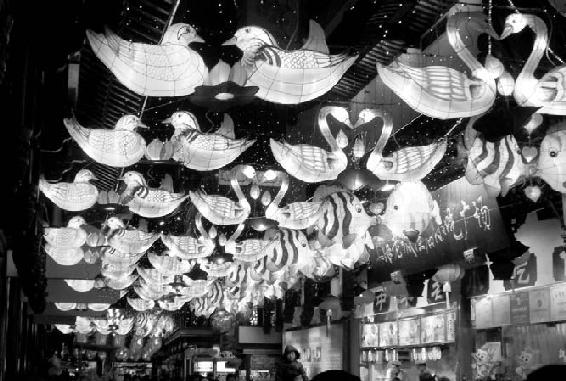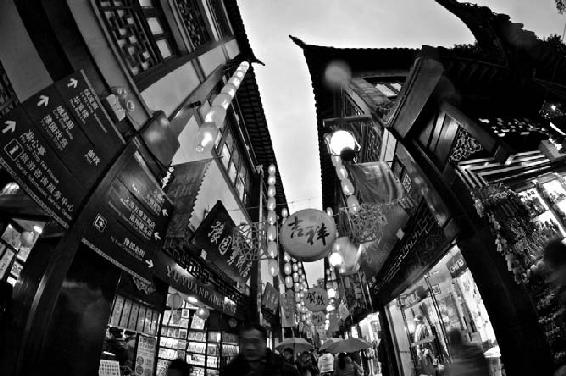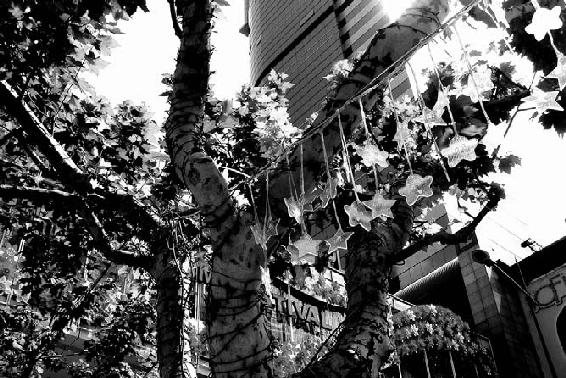Shanghai is located in the south of the lowest reaches of the Yangtze River, so its customs have much in common with those of other places in that area. Ever since Shanghai was opened as a port for foreign trade, its water transport gradually became busy. Shanghai has become a densely-populated city in which people from many other provinces and countries live in harmony. The customs there have been enriched and Shanghai has developed its own characteristics.
上海位于江南,因此上海的民俗风情与江南地区其他地方有很多相同之处。在开埠之后,上海的水路交通日益繁忙起来。上海演变成了一个人烟稠密、华洋杂居、五方杂处的城市,这也给原有的风俗增添了新的内容,而上海也形成了自己的特色。
As it was developed from a small fishing village, Shanghai strived to keep many of its Chinese folk customs; thus there are several traditional festivals and activities still to be seen there such as New Year Bell Striking, Yuyuan Lantern Festival and Longhua Temple Fair.
上海是从一个小渔村一路发展壮大起来,如今尽力维护着很多中国传统的民间习俗,有很多传统节日庆祝等活动,比如新年撞钟,豫园元宵灯会,以及龙华庙会等。

Besides its modern achievements, Shanghai boasts attractive natural scenery and a special cultural foundation. Therefore a number of modern festivals are held here to show them; for example, Shanghai Peachblossom Festival, International Tea Culture Festival, International Flower Festival, Television Festival, International Arts Festival and Shanghai Tourism Festival.
除了其卓越的现代化成就外,上海还拥有迷人的自然风光和独特的文化底蕴。也正因如此,很多现代的节日也在此举办,例如上海桃花节,国际茶文化节,国际花节,电视节,国际艺术节,上海旅游节。
Lunar New Year's Eve, or "the 30th of December," means the last day or night of the lunar year, and that night is also called the Great New Year's Eve. The Chinese character "除夕" means "to eliminate," therefore that night also means "to eliminate a year." The 23rd of December of lunar calendar is the Kitchen Day, and people offer sacrifices to the Kitchen God. 24th of December is the "Minor New Year's Day", and from that day through the lunar New Year's Eve, every household has a general cleaning. They will also do Spring Festival shopping. Pigs and sheep are butchered in the countryside, and people will thresh and polish sticky rice, make all kinds of dim sum and cured meat. New Year pictures are also put up in and out of the houses. People in town often buy some flowers like narcissus, wintersweet or nandina, and put them in vases so as to add to the atmosphere of the festival. When night falls, all family members gather together and eat New Year's Dinner, or the "Family Reunion Dinner,"" in which a big variety of dishes are served.
除夕,即大年三十,是农历的最后一天,故又称“大年夜”。除夕中的“除”字意为“除去”,所以除夕又被叫做“岁除”。农历腊月二十三为灶日,人们都要祭拜灶神。腊月二十四为“小年”,从这一天起到除夕,家家户户都要打扫卫生,购置年货。在农村人们则杀猪宰羊。大家磨糯米粉,制作花样繁多的点心,腌制各种腊味,年画也贴了起来。城里的人们还往往买来水仙、腊梅、天竺等等插在家中花瓶里以增添节日气氛。夜幕降临,全家团聚吃年夜饭,也叫团圆饭,享用丰盛的菜肴。
Staying up all night, citizens usually watch TV at home and wait "to see the Old Year out and the New Year in."
到晚上,市民一般在家观看电视节目,熬夜守岁。
When the bell tolls for the New Year, firecrackers are let off to welcome the new spring. For security's sake, firecrackers are banned in town.
新年钟声敲响时,霎时间鞭炮齐鸣,迎接新春的到来。而如今考虑到安全因素,市区已禁放鞭炮。
The Spring Festival is the most important traditional festival for Chinese people. January 1st of the lunar calendar is the Chinese New Year. Early morning, people are well dressed and the whole family pays a visit to the elder generation. Peers send New Year greetings to each other. The senior members of a family will give money in a red envelope to the children as New Year gifts to congratulate on their growth. In the afternoon of the New Year's Day and the following two days, people will visit their relatives and friends, and many people have made use of modern technologies: they send regards to each other through videophones and the Internet.
春节是我国人民最重视的一个传统节日。农历正月初一是传统的新年。初一一大早,人们都穿戴整齐,全家向长辈拜年,平辈之间也相互拜年。家中长辈还要用红包给孩子们分发压岁钱,祝贺他们又长一岁。初一下午以及初二、初三外出拜年。而今通讯越来越发达,不少人也利用电话、网络等现代科技相互拜年。

On the 4th day of the New Year, many people buy fresh carp to welcome the God of Wealth, since the character "鲤" (carp) sounds similar to“利”(wealth), and a red carp with its head and tail lifted up look just like a gold ingot (sycee, Yuanbao). All streets are busy during the first five days of the New Year, and people go on pilgrimage to the temples in an endless stream.
正月初四,不少人都买了活鲤鱼“迎财神”,因为“鲤”和“利”读音相近,且鲤鱼昂首翘尾的姿态像极了大元宝。初一到初五,街上热闹非凡,前往寺院进香的人们络绎不绝。
Stores are closed in the first three days of the New Year, and some are even closed till the fifth day, the only days for relaxation in a year for the staff. The God of Wealth is received on the fifth day, and people have a big meal that night.
商店在初一到初三都停业,叫做“封关”,也有一些停业到初五,这是一年中职工们唯一休息的日子。初五接财神,晚上吃财神酒。
January 15th is the Lantern Festival. People eat wontons in the day and rice dumplings in the evening. During the festival, large awnings are set up in old districts of Shanghai, and all kinds of lanterns together make a splendid view. Sailing boats with lanterns float in great numbers in the Huangpu River. Lanterns are also put up in the fields to anticipate a golden harvest. "Lantern Dragon Show" is a wonderful festival performance in western suburbs and Jiading Nanxiang. The performance is accompanied by gongs and drums, and sometimes there are dozens of lantern dragons pursuing a dragon ball.
正月十五是元宵节。人们一般白天吃馄饨,晚上吃汤圆。节日这天,上海的很多老城区内搭起高大的灯棚,挂上各种花灯,蔚为壮观。黄浦江上樯帆林立,桅杆上挂着灯,遥似繁星。田间地头也挂起灯盏,名曰“望田灯”,预兆“五谷丰登”。“耍龙灯”是在西郊和嘉定南翔一带的热闹的节庆表演,表演时伴以锣鼓,有时还会有数十条龙灯表演戏龙珠。

During the Lantern Festival, women were supposed to cross three bridges. It is said that the family would get rid of all diseases if the women go across three big bridges at a night with bright moonlight. This could be easily done since there were quite a few bridges in old Shanghai, among which the Lu Stone Bridge usually drew more attention.
过去妇女们在元宵节还要“走三桥”,据说如果在月色皎洁的夜晚走过三座大桥,全家就可以终年无疾。旧时上海城内城外水渠交错纵横,桥梁多,走过三座桥也就很容易。而当时去小东门外走一走陆家石桥的人尤为多。
During the Dragon Boat Festival in May, people eat zongzi, a pyramid-shaped dumpling made of sticky rice wrapped in bamboo or reed leaves. Calamus and garlics are hung on the doors to avoid evils. Realgar wine is served at noon and Chinese herbs like rhizome Atractylodes, Dahurian angelica roots and rue are burnt to fumigate the room. Realgar is powdered on children's forehead to avoid heatstroke and other diseases. Zongzi, loquat, yellow croaker and garlic are the popular food in season. Watching dragon boat races is a popular program favored by most people.
农历五月初五是端午节,家家包糯米粽子,也叫角黍,门上要挂菖蒲、艾蒿、蒜头来辟邪。正午时喝雄黄酒,用苍术、白芷、芸香等中草药烟熏室内。把雄黄涂于儿童额头,用来祛湿解毒,除秽防暑。当令的食物有粽子、枇杷、黄鱼、大蒜等。去看一看赛龙舟也是大多数人的节日必备项目。
Mid-Autumn Festival is the time to watch the moon. In old Shanghai many people loved to see the reflection of the moon in the river, and "Shiliang Night Moon" was counted as one of the eight sceneries in Shanghai. When the great tide comes on the 18th, many people go to see it in Dongcheng or Haining in Zhejiang province. In recent years, quite a few people have enjoyed various shows in the Shanghai Osmanthus Festival.
中秋节是赏月的节日。旧上海时,很多人喜欢到小东门外陆家石桥观赏桥下月影荡漾,这“石梁夜月”便是“沪城八景”之一。等至八月十八大潮汛,很多人来到东城或浙江海宁观江潮。近年来也有不少人选择去观看“上海桂花节”等其他表演。

On September 9th, people make steamed Chongyang cakes with sugar and glutinous rice, and pine cakes are specially made in Jiading and Chuansha. People also drink Chongyang wine and climb up high mountains to celebrate the festival.
农历九月初九重阳节,人们用糯米粉和糖蒸重阳糕,嘉定和川沙等地则制作松糕。人们还会饮重阳酒、登高等来庆祝节日。
1. eliminate [iˈlimineit] vt. 消除;排除
例 There is waste in government, and we have eliminated some of it.
政府有浪费行为,我们已经消除了部分浪费行为。
2. glutinous [ˈgluːtinsəs] adj. 粘的;粘性的
例 It is small dumpling balls made of glutinous rice flour with other ingredients as filling.
它是一种用糯米和其它食材做馅制成的小圆球。
A: The Spring Festivel is coming soon, have you done the preparation for it?
春节就要到了,你做什么准备了吗?
B: Yes, my mother and I have done some shopping in the market and cleaned our house.
是的,我和妈妈去市场购置了年货,打扫了家里的卫生。
A: Me, too. Will you go out to attend some outdoor celebrating activities?
我也是。你会去参加户外庆祝活动吗?
B: I'd like to, but I don't know the time.
好啊,但是我不知道时间。
A: The temple fair will begin tomorrow and last for three weeks.
庙会明天就开始了,会持续三周。
B: That's great. I like watching the dragan dance very much.
太棒了,我特别喜欢看舞龙。
A: I heard that this year's dragan dance will be unprecedented, as the year of dragan is to come.
听说今年的舞龙会空前盛大,因为龙年就要到了。
B: Wonderful, I can't wait to see it.
真等不及想看看了。
我国汉地佛教认为“布袋和尚”是弥勒佛的化身,龙华寺是他的道场。“布袋和尚”于农历三月初三圆寂,于是世人每逢这一天就在龙华寺举行庙会,以纪念汉化弥勒。相传弥勒降生于龙华树下,传道弘法,广度众生,谓之“龙华会”。明清以来,随着上海商业的兴起和发展,龙华庙会就在前来龙华寺朝香拜佛的善男信女们中渐渐形成,四百余年来绵绵不绝,逐渐形成华东地区历史最悠久、规模最宏大的民间盛会。建国后,随着宗教政策和城乡物资交流的发展,庙会年年举行,只是在十年动乱期间才被迫中断过。庙会期间,龙华古寺内佛事兴旺,香烟袅袅,佛教梵乐悠扬悦耳。龙华古镇上,各种店铺鳞次栉比,买卖兴隆,地方风味小吃特色各异。国内外旅游者既可品尝到著名的龙华素斋,还可以参加当地举办国际旅游者一日游活动。早晨可以学剑习武,白天去庙会逛集市,品尝风味小吃,观看文艺演出等,夜间可参加龙华寺前广场载歌载舞的欢迎仪式,参观藏经楼。现在,龙华庙会已成为集自然景观、民间文艺、古代建筑、风味小吃、商业集市和宗教活动于一体的旅游活动,每年参观游览者多达500余万人次。
免责声明:以上内容源自网络,版权归原作者所有,如有侵犯您的原创版权请告知,我们将尽快删除相关内容。
















